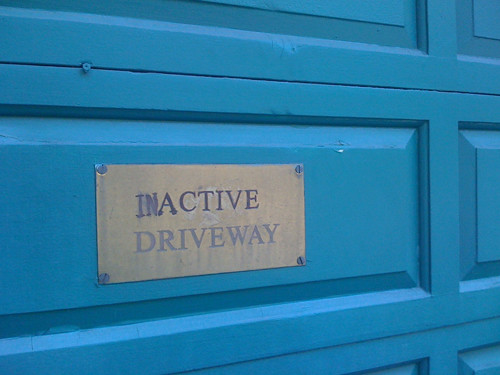
At the MacWorld Expo last week, hidden away in a far corner, I was pleased to notice a tiny booth for the medical office and records software product pictured above.The health care reform act aims to improve care and cut costs by providing incentives to get doctors and hospitals to use electronic records. If somebody thinks there is a market for such products that can be reached at a consumer electronic show, that's a good thing.
A searing oped in today's Boston Globe is reminder of why systemic changes that encourage and enable medical practitioners to talk to each other can be life saving. The author (a doctor) and her sister (a lawyer) just shepherded their very ill mother through a hospital admission. Because heart doctors don't talk to diabetes doctors and hospitals don't have integrated medical records, well meaning professionals very nearly killed the sick woman, sending her repeatedly into insulin shock.
Moreover, the lack of integrated records led to the scenario I've seen so many times when helping friends navigate hospitals: every doctor arriving on the scene starts over from the ground up asking the same questions about past illnesses and prescriptions. The sick person can begin to feel she is afflicted by lazy dolts who don't listen to what she has already explained again and again. Then she checks out and starts leaving out parts of the history, doctors miss important data, and even make it the patient's fault because she got frustrated by repeated inquiries.
Dr. Madeleine Biondolillo described how this happened to her mother:
Most of us don't have a doctor and lawyer in the family to get us through this sort of thing. We need the government to push doctors and hospitals to do what they seem unable to do themselves: integrate care so that the medical system passes information seamlessly. Part of this should include incentives to doctors in all parts of the system to communicate; electronic records should make communication cheap enough so the financial incentive need not be exorbitant.“She’s not able to tell me her history,’’ was the refrain I heard so often from hospital doctors who didn’t know what to make of a well-educated, elderly lady who couldn’t remember what her near-lethal blood sugar level had been after her insulin pump failed and brought on her heart attack. She couldn’t say what her dose of insulin had been changed to during her last visit with her primary care physician. She couldn’t remember these things because she was too sick to remember.
If the hospital doctors had spoken to her primary care physician, they could have had all the information they needed to guide their decisions. But hospital doctors often don’t communicate with office doctors, leaving the patient to fend for herself, just when most vulnerable. In addition, office doctors are responsible for a patient’s care after she leaves the hospital, but frequently don’t even know that she’s been hospitalized until she returns to the office.
When my mother became stable enough to leave the ICU, she was transferred to a step-down unit only two doors away, but with a whole new medical team — doctors, nurses, aides, case managers. And every new clinician had to read the paper chart, or if unable to decipher it, “interview’’ my mother again. “She’s not able to tell me her history. . .’’ over and over again. Exasperated, my sister introduced us with, “Hi, this is my sister, she’s a doctor. And I’m a lawyer.’’
There's money in the health care reform to encourage electronic medical record keeping. Will Congressional Tea Party Republicans cut those funds for so doctors go on endangering patients for lack of incentives to talk to each other?































